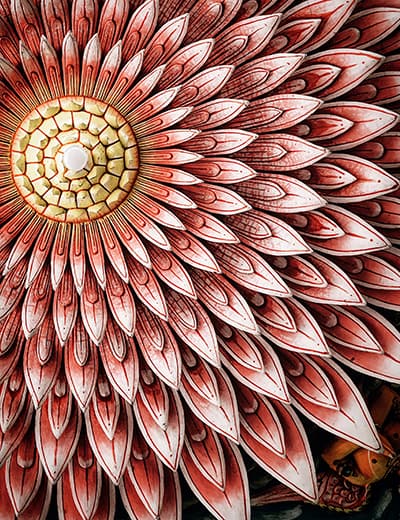
NARRATIVES
A LITTLE CORNER OF PARADISE
South India
“The one who looks outside dreams,
the one who looks inside awakes”
- Carl Jung
“Breathe in, breathe out. With a gentle smile on your face, relax.”
With her clear voice, Dr Savita has succeeded to open my mind and body to the wonders of yoga. I am in SwaSwara, a secret retreat spread out just above Om beach near Gokarna, a small town dedicated to Lord Shiva who is believed to have appeared here from a cow’s ear. After three weeks of relentless work, travelling all over India, a time of well-deserved rest seems to be the right step to take.
SwaSwara means the sound of the inner self. For me, it holds the promise of reconnecting with the core of my being in the sanctuary of nature. I have wanted to come here for long, and the first few days have already flown by. Every morning I have been greeting the sun, a simple pleasure, long forgotten for the city dweller that I am. I have seen it announce its presence embracing, at first the small holes in the forest, then slowly pointing its bald head over the hills. Below the single palm tree that marks like a flag the furthest point east of Om beach, dolphins play hide and seek in the waves, hawks and kites hover above my head.
The yoga lesson has followed the meditation on the hill every day and I have never been tempted to sleep in. The three teachers are competent and very interesting; two of them are also naturopathic doctors, Dr Savita and Dr Vinod, and both have studied at the Rajiv Gandhi University in Bangalore. In that campus, allopathic medicine is taught in the same premises as homoeopathy, naturopathy and yogic sciences. They are considered equally important and complementary.
When I first met Savita, I thought that was the closest I had gotten to meet an Indian goddess. She is beautiful and considerate, calm and joyful and has the voice of an angel when she chants the slokas that introduce and conclude a yoga session. The practice of yoga nidra with her, under the four-hundred-year-old-banyan tree for half an hour, equals six hours of deep sleep and has a powerful regenerating effect.
Vinod is young and enthusiastic; he comes from a family of doctors but wants to experience the world before joining their clinic. He is a strong advocate of naturopathy and has suggested I should follow a juice diet to detox my body that has made me feel lighter and younger. He has suggested that I do not drink water during meals and has made sure that the waiters in the restaurant don’t serve me any. He is also a skilled practitioner of kalaripayattu, the ancient martial art from Kerala. When he teaches yoga, his husky voice has the power to relax even the walls and everyone in the class can’t but concentrate on breath and movement.


Krishna, the third teacher, has a diploma in yogic sciences and is more comfortable speaking Sanskrit than English. His yoga is energetic, uncompromising, precise. He enumerates the benefits of each exercise and smiles with a big grin. He also teaches laughter yoga, a practice that deserves a special mention. In my experience, after an erudite introduction, ten Europeans are invited to start running in circles, clapping hands and making funny noises. When we stop, Krishna tells us the story of a New Year celebration in the forest to which we are invited. We mimic the wild animals making broad movements and laughing loudly. At first, we are faking it, of course. As the tempo increases, our bodies break into a sweat, we revert to a childlike mode and our inhibitions disappear. We play the elephant, the bear, the dear, the monkey, and by the time we are invited to a big feast of spicy food, we are all looking at each other, laughing for real, without restraint. Even after the exercise is over and we lie down in savasana for relaxation, some of us are still bursting out in laughter. By the end of the session, we all clap, thankful to Krishna who has made us laugh heartily.
Mr and Mrs Shobha are the ayurvedic doctors at SwaSwara. They are a handsome married couple and are in charge of the centre, an abode of peace where it is easy to let go of all the accumulated stress. The consultation with the doctor does not last long in my case, I do not complain of any major ailments, just great fatigue. My blood pressure is on the verge of being low, says the doctor. The therapist takes me to a quiet room in the penumbra. An oil lamp is lit, red and white hibiscus flowers are placed over the massage bed. Archana invites me to remove the green gown and I sit on a stool. She opens my hair, removes my bangles and explains the procedure. “First, a prayer”, she says and with a faint voice she sings a litany in Sanskrit that loosely means: “I bow to you, Lord of healing, for you to come and make my intervention beneficial.” She massages my head with medicated oil, specially made for my Prakriti, my constitution and proceeds to massage my back, then invites me to lie down on my stomach.

Without a noise, one of her colleagues joins her to massage my body rhythmically as if performing an ancient dance. While my body relaxes fully, my mind dwells in an indescribable density. I lose the sense of time, but I do not fall asleep, I am ready to turn around when I am asked to do so. The front of my body, then my face is gently massaged and finally, I am invited to go for a shower. Handwoven cotton towels are laid out on the floor for me to walk on, it feels like I am stepping on clouds, but then it must be the effect of the hour-long massage. I wash away the oil with rice powder and warm water. Before I am allowed to go, Archana combs my hair and places a bindu, a dot of sandal paste on my forehead, between my eyebrows to encourage the opening of the third eye, the centre of inner vision and intuition. When I go back to see Dr Shobha, I have no complaints to report and sip down my herbal drink with great pleasure.
For four days, I have retired from the outside world without regret, been pampered in an environment of beauty and calm, walking on the beach, swimming, reading, meditating, following my treatments, practising yoga and eating the most delicious inventive vegetarian food I could have ever imagined, served with great attention to detail. On the fifth day, I decided to venture out of the Garden of Eden that SwaSwara appears to be. I renounce my morning meditation to follow the in-house naturalist who takes a small group of us up the hill, into the woods, all the way to the single palm tree for us to see the entire shape of Om beach. We walk down to Paradise beach and take a boat to go back to SwaSwara. My friend Jessamine looks very happy with her hair flowing in the breeze and a big blissful smile on her face. She has come all the way from Australia and is falling in love with India.
We are both very curious to discover Gokarna and we are not disappointed. In spite of a large number of aimless westerners who come here to run away from the scary world of adulthood, I guess, the temple town retains a very authentic character typical of traditional India. Walking through the streets, entering a temple, we are thrown back in time, to a place where the sacred and the mundane coexist harmoniously. The aesthetics of such a lifestyle have always touched my heart. The Ram temple, just above the beach, struck me particularly, with those priests performing puja in a suspended time of uninterrupted worship.
Back in SwaSwara, I measure the efforts that are done to reduce the impact of our presence on nature. The low tuft roof constructions blend graciously with nature and the water we use and even drink has been collected during monsoon time, boiled and disinfected for consumption. Responsibility towards the environment does not stop with nature though. SwaSwara plays a positive role for the local communities as well. On the 8th of March, to celebrate the international women’s day, the general manager, Mini Chandran, who is a woman, along with all the doctors and assistants, decided to offer free medical check-up to the 120 women who work at a nearby cashew processing factory and their children.



The factory is an extension of the house of a Brahmin, a follower of Aurobindo, who also produces a delicious natural juice. I am impressed by the kindness and the dedication the doctors shower their patients with. Their reward is the relieved smile on the workers’ faces, so pleased to be able to share their worries with competent professionals.
Today the ocean, that has been calm all along, is roaring gently as if to mark its disappointment with me leaving tomorrow. I am happy to go back home to my dear ones, but a bit sad as well to leave behind this little corner of paradise that has conjured all means to restore my energy. I will carry SwaSwara with me, in my inner landscape, like an oasis to revert to whenever I need a place of peace and beauty inside. In the sacred geography of India, SwaSwara is a pilgrimage into the self, a place of inner contemplation, a wilful journey towards one’s joie de vivre.
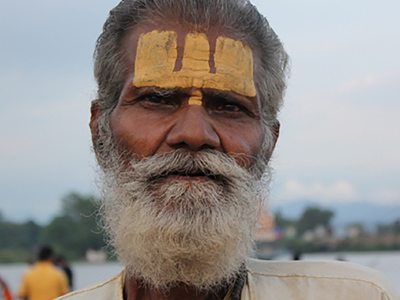
Holy Dust
In her cosy New England kitchen, my grandmother is serving me a cup of green tea. She then sits in front of me, staring. Finally, she asks
Narrative • North India
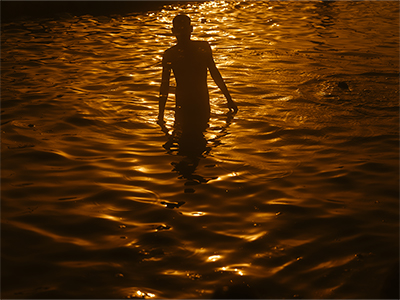
Twilight Hours
In today's age, when distance has lost its meaning and cultures assimilate seamlessly, the character of a city is often cascaded by the hurried bustle of the daily chase...
Narrative • North India
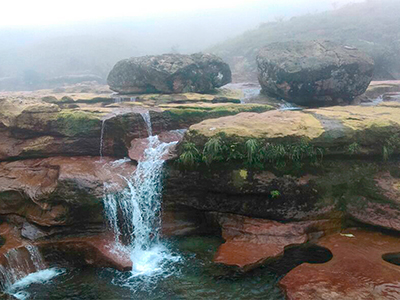
Of Myth and Mist
A classic journey exploring the many cultures that exist in Northeast India, through the states of Assam, Meghalaya, and Nagaland...
Bespoke Journey • East India
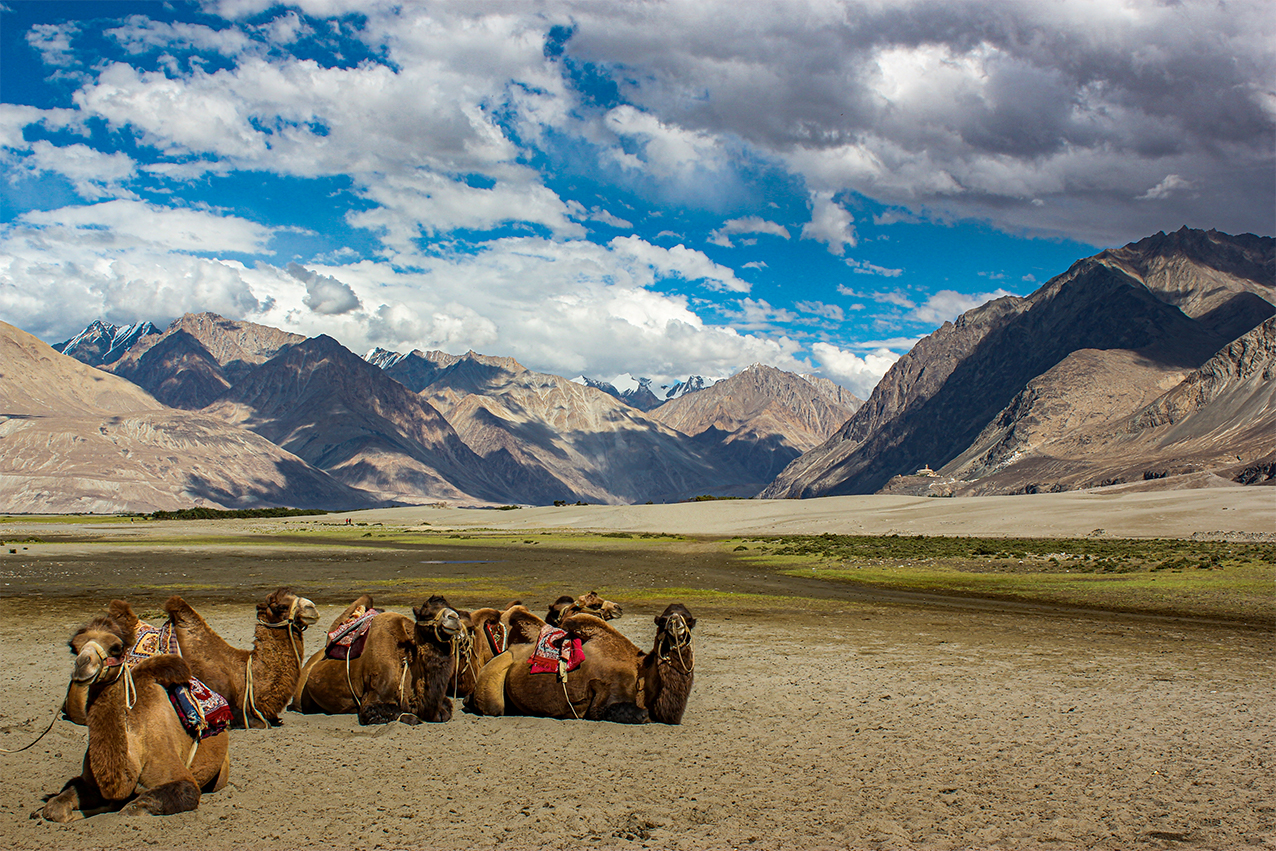
A Wondrous Moonland
A journey that takes one through the surreal mountainscapes and the unique lifestyles of the Ladakh region...
Bespoke Journey • North India
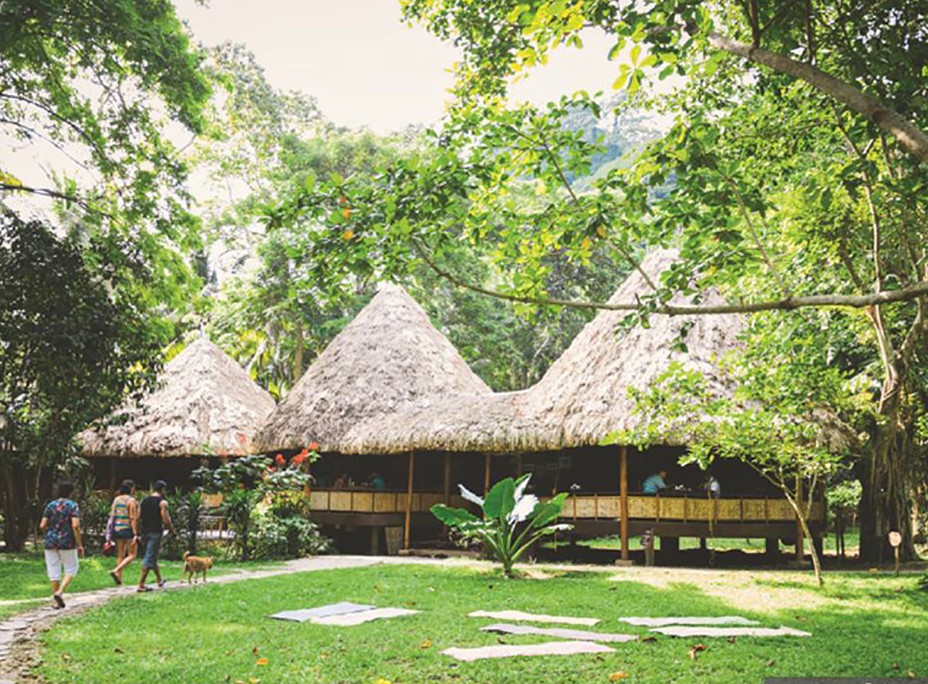
Barefoot
White sandy beaches separate crystal clear azure waters from lush curtains of rainforest green...
Hotel Guide • South India
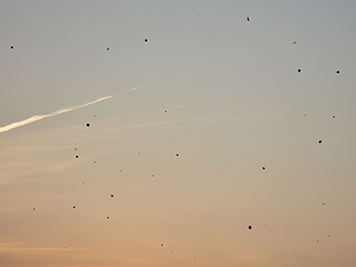
Seize the Place
Ahmedabad is white and yellow under winter’s sun, melting houses banally spread beyond her sight. Yet one more sprawling city...

